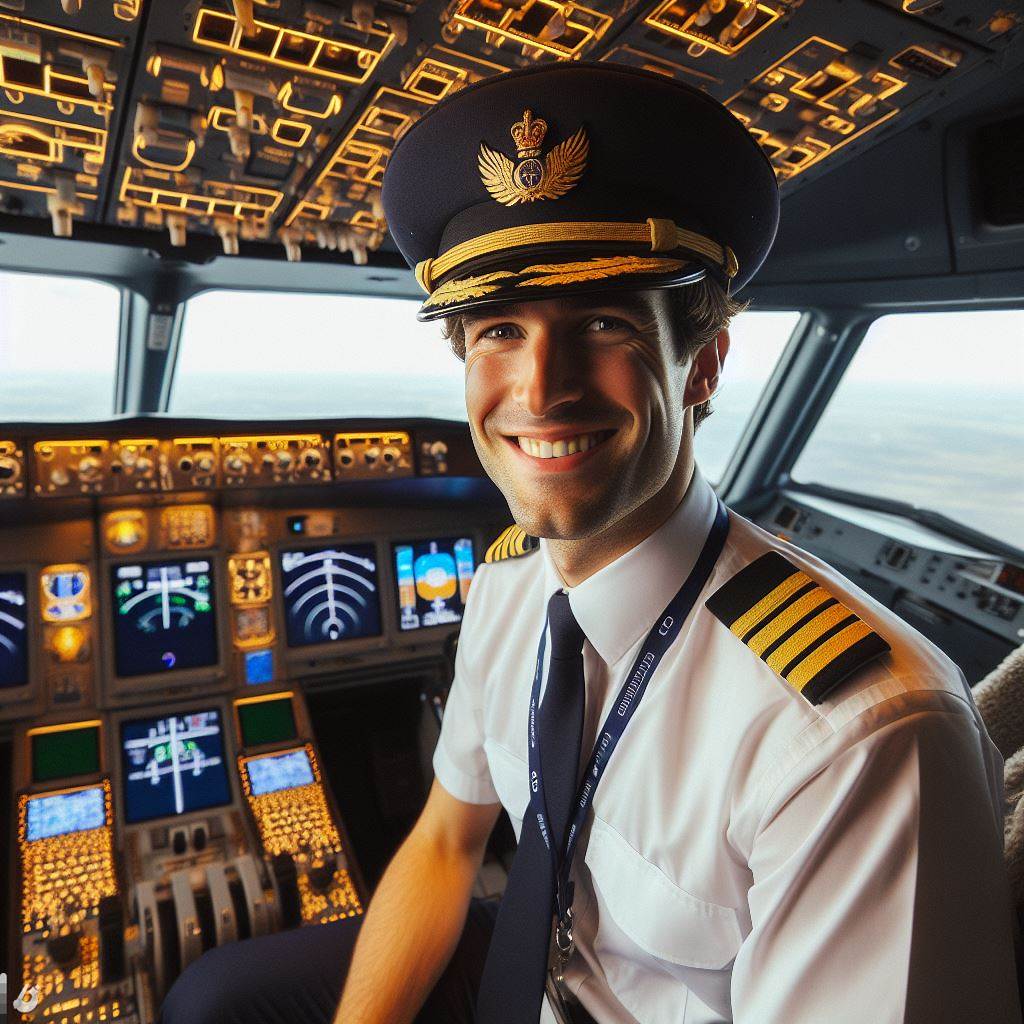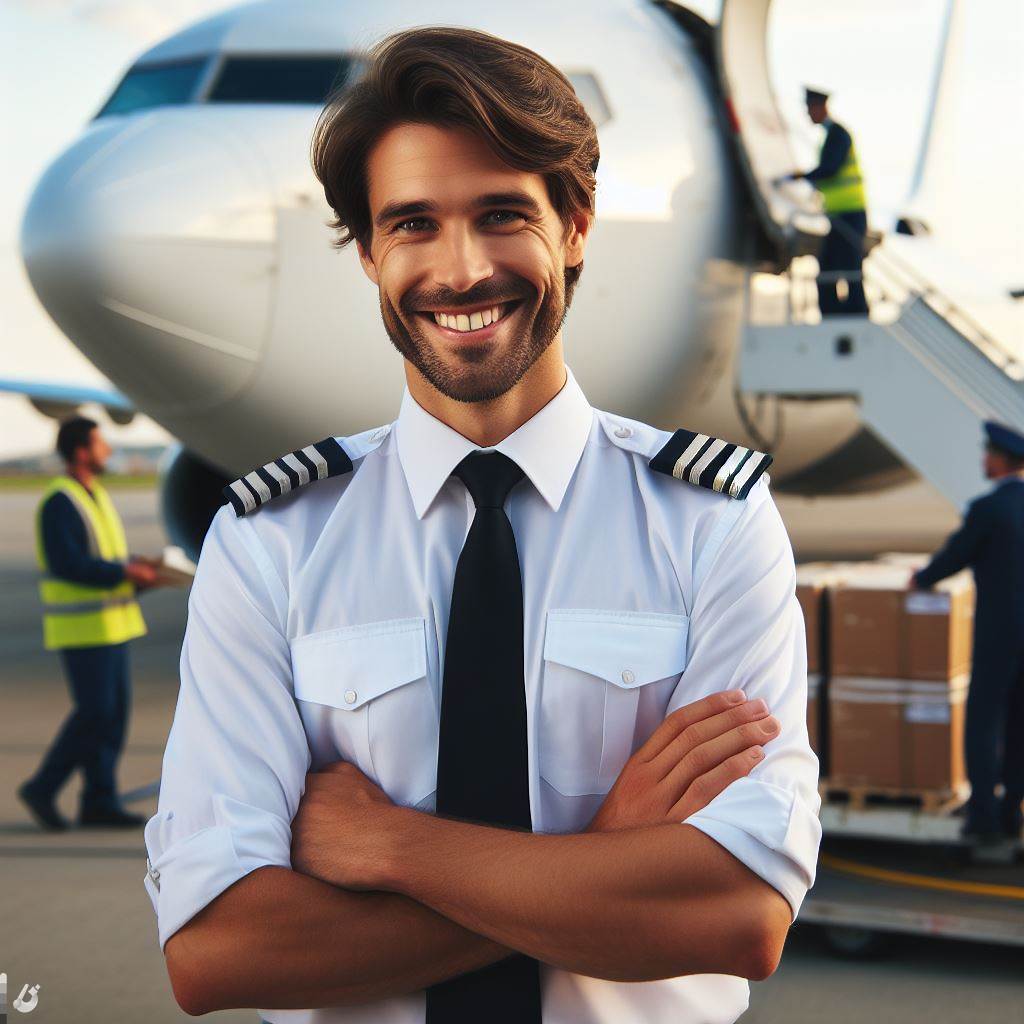Introduction
Pilot unions are organizations that represent pilots and advocate for their rights and interests.
They play a crucial role in the aviation industry by ensuring fair working conditions, negotiating contracts, and addressing safety concerns.
In the UK, pilot unions have significant influence due to their membership and collective bargaining power.
They work closely with airlines and regulatory bodies to shape policies and practices that affect pilots.
One key influence of pilot unions in the UK is their ability to negotiate fair pay and benefits for pilots.
Through collective bargaining, unions can secure competitive wages, better working hours, and improved conditions for their members.
Additionally, pilot unions in the UK have a strong voice in matters of safety and training.
They actively contribute to the development of regulations and standards to ensure the highest levels of safety for both pilots and passengers.
Moreover, pilot unions in the UK provide support and representation for pilots facing disciplinary actions or disputes with their employers.
They offer legal assistance and advocate for their members’ rights, ensuring a fair and just process.
Overall, pilot unions in the UK hold significant importance and influence in safeguarding pilots’ rights, improving working conditions, and maintaining high safety standards.
Their collective strength and advocacy efforts contribute to a more balanced and secure aviation industry.
History of Pilot Unions in the UK
Pilot unions in the UK have a long and rich history, dating back to the early days of aviation.
From their beginnings to the present, these unions have played a crucial role in shaping the industry and advocating for the rights of pilots.
Early Formation and Growth of Pilot Unions
- The first pilot union in the UK was established in the 1910s, as aviation started to gain traction.
- Initially, these unions faced resistance from employers who were hesitant to give pilots collective bargaining power.
- Despite the challenges, pilot unions gradually grew in numbers and influence throughout the 1920s and 1930s.
- Unions such as the British Air Line Pilots’ Association (BALPA) emerged as prominent voices for pilots’ rights.
- During this period, pilot unions focused on advocating for improved working conditions, fair wages, and standardized safety regulations.
Challenges Faced by Pilot Unions in the Past
- Pilot unions have faced numerous challenges throughout their history, especially during times of economic downturns.
- During World War II, many pilot unions were disbanded temporarily as pilots joined the war efforts.
- The post-war era witnessed a surge in air travel, leading to increased demands on pilots and heightened safety concerns.
- Pilot unions had to navigate complex negotiations with airline companies to ensure the best outcomes for their members.
- Additionally, technological advancements in aviation presented new challenges that pilot unions had to address.
Significant Achievements and Milestones
- Pilot unions have achieved several significant milestones over the years, greatly benefiting their members and the industry as a whole.
- One notable achievement was the successful campaign for limited flight-time regulations to prevent pilot fatigue.
- Unions have also played a vital role in ensuring fair disciplinary procedures and protecting pilots from unjust treatment.
- Pilot unions have fought for improved retirement benefits, including pension schemes and healthcare coverage.
- Moreover, these unions have been instrumental in advancing pilot training standards and enhancing safety protocols.
In short, the history of pilot unions in the UK is a testament to their resilience and commitment to protecting the rights and interests of pilots.
Personalized UK Career Consulting
Receive tailored career guidance designed just for you. Get actionable steps and expert support to boost your career in 1-3 days. Take control of your career now.
Get StartedFrom their early formation to the present day, these unions have faced challenges and achieved significant milestones.
Through their collective efforts, pilot unions have improved working conditions, advocated for fair treatment, and contributed to the overall safety of the aviation industry.
As aviation continues to evolve, pilot unions will undoubtedly remain essential in shaping the future of the profession and ensuring the well-being of pilots.
Read: The Role of Technology in UK Pilot Training
Role and functions of pilot unions
- Pilot unions play a crucial role in representing the interests of pilots in the UK.
- They act as a collective bargaining representative for pilots, negotiating better pay and working conditions.
- Unions ensure that safety standards and regulations are met to protect pilots and the public.
- They promote professional development and training opportunities to enhance the skills of pilots.
Advancing the interests of pilots
- Pilot unions work towards safeguarding the rights and interests of pilots in the aviation industry.
- They strive to improve the working conditions and ensure fair treatment for their members.
- Unions aim to address issues such as long working hours, fatigue management, and job security.
- They advocate for reasonable rest periods and fair scheduling practices for pilots.
Negotiating better pay and working conditions
- Pilot unions engage in negotiations with airlines to secure better pay and benefits for pilots.
- They strive to ensure that pilots are remunerated fairly for their skills, qualifications, and experience.
- Unions work towards improving working conditions, including adequate rest periods and manageable workloads.
- They also negotiate for benefits such as healthcare, retirement plans, and insurance coverage.
Ensuring safety standards and regulations are met
- Pilot unions play a crucial role in maintaining high safety standards in the aviation industry.
- They work closely with regulatory bodies to ensure compliance with safety regulations.
- Unions advocate for effective safety protocols, procedures, and training programs.
- They monitor and report any safety concerns or hazards to protect pilots and passengers.
Promoting professional development and training opportunities
- Pilot unions recognize the importance of continuous professional development for pilots.
- They strive to provide access to ongoing training opportunities and career advancement programs.
- Unions may offer workshops, seminars, and mentorship programs to enhance pilot skills.
- They encourage their members to pursue additional certifications and educational opportunities.
Read: A Day in the Life of a UK Train Operator
Major Pilot Unions in the UK
British Airline Pilots’ Association (BALPA)
BALPA, established in 1932, is one of the most influential pilot unions in the UK.
With a rich history spanning almost a century, BALPA has had a significant impact on the aviation industry.
Currently, BALPA represents over 85% of all commercial pilots working in the UK.
The association plays an essential role in protecting pilots’ rights and improving working conditions.
BALPA negotiates with airlines on behalf of its members to secure fair pay and strong contracts.
Over the years, BALPA has successfully campaigned for improved flight safety regulations and pilot fatigue management.
The association continuously strives to ensure pilots have a strong voice in decision-making processes.
BALPA actively engages in lobbying efforts, both nationally and internationally, to influence aviation policies.
The union also supports pilot training and development programs, aiming to enhance professional standards.
Your Dream Job Starts with a Perfect CV
Get a tailored CV and cover letter that captures your unique strengths and stands out in your industry. Let us help you make an unforgettable first impression.
Get StartedNotably, BALPA played a vital role in securing pilot welfare during the COVID-19 pandemic.
The association fought for job protection and financial support for pilots affected by the industry downturn.
Professional Pilots’ Union (PPU)
Founded in 2011, the Professional Pilots’ Union (PPU) is a relatively new advocate for UK pilots.
PPU focuses on promoting fairness, transparency, and professionalism within the aviation sector.
The union strives to ensure pilots’ voices are heard in matters related to safety, training, and employment.
PPU has made significant contributions to the industry by advocating for improved safety standards.
The union actively collaborates with regulatory bodies to address safety concerns and implement necessary changes.
PPU constantly monitors working conditions and campaigns for fair and equitable employment terms.
The union has been instrumental in securing better pay and benefits for its members.
PPU played a crucial role in pushing for regulations to mitigate pilot fatigue and improve rest requirements.
Through negotiations and dialogue, PPU works towards creating a positive impact on pilots’ well-being.
The union also provides extensive support to its members through legal assistance and professional advice.
PPU actively encourages the professional development of pilots and promotes lifelong learning.
Overall, both BALPA and PPU play vital roles in representing UK pilots and advancing their interests.
Optimize Your LinkedIn for Success
Boost your LinkedIn profile with a professional bio, keyword-rich headline, and strategic recommendations that attract recruiters. Stand out from the crowd and get noticed.
Optimize NowThrough their influence and advocacy, these unions contribute significantly to the safety and welfare of the aviation industry.
Read: Women in Air Traffic Control: UK Perspectives

Challenges and Controversies
- Pilot unions in the UK face numerous challenges and controversies in their quest to protect pilot rights and improve working conditions.
- One major challenge is the frequent disputes that arise between pilot unions and airlines or management.
- These disputes often revolve around issues such as pay, working hours, and safety regulations.
- The power struggle between pilot unions and airlines can create tension and adversely affect the smooth operation of the aviation industry.
- While the ultimate goal for pilot unions is to ensure fair treatment for their members, it can sometimes lead to bitter disputes and even strikes.
Disputes with Airlines and Management
- Pilot unions frequently find themselves at odds with airlines and management due to conflicting interests and priorities.
- Airline companies often prioritize cost-cutting measures and profitability, which can clash with the demands of pilot unions for better pay and working conditions.
- Disputes may arise over issues such as rostering, fatigue management, and the implementation of new safety regulations.
- The relationship between pilot unions and management can become strained if open and constructive dialogue is not maintained.
- Negotiations and collective bargaining play a crucial role in finding common ground and resolving disputes between the parties involved.
Controversial Stances or Actions Taken by Pilot Unions
- At times, pilot unions in the UK have taken controversial stances or actions to assert their influence.
- These actions can range from organizing strikes that disrupt airline operations to publicly criticizing management decisions.
- Such controversial actions can polarize public opinion and create friction between the unions, airlines, and passengers.
- While pilot unions have a responsibility to protect the interests of their members, they must also consider the wider impact of their actions on the industry and passengers.
- Striking a delicate balance and finding alternative ways to address concerns can often mitigate controversies and maintain positive relationships.
Balancing the Interests of Pilots, Airlines, and Passengers
- Pilot unions face the ongoing challenge of balancing the sometimes conflicting interests of pilots, airlines, and passengers.
- While prioritizing the rights and well-being of pilots is essential, it must be done in a manner that supports the sustainability of the aviation industry.
- Striving for fair wages and reasonable working conditions for pilots is crucial, but it cannot compromise airline profitability and passenger affordability.
- The ability to find common ground and build constructive relationships between all parties involved is key to navigating these challenges.
- Collaborative efforts and effective communication can lead to outcomes that satisfy the interests of pilots, airlines, and passengers alike.
Read: Salary Insights: UK Air Traffic Controllers
Impact of Pilot Unions on the Aviation Industry
Pilot unions in the UK play a crucial role in shaping the aviation industry.
Their influence extends to various aspects, including improved working conditions, industry-wide standards, safety enhancements, and fair treatment for pilots.
Improved working conditions for pilots
- Pilot unions advocate for better working conditions, such as reasonable working hours and adequate rest periods.
- They negotiate with airline management to ensure fair pay, benefits, and job security for pilots.
- Through collective bargaining agreements, unions work towards achieving a work-life balance for pilots.
- Unions also address issues related to pilot fatigue and stress, promoting a safer working environment.
Influence on industry-wide standards and practices
- Pilot unions collaborate with regulatory authorities to set industry-wide standards for pilot training and certifications.
- They provide valuable input in the development of aviation regulations, aiming to enhance safety and operational efficiency.
- Unions work towards implementing standardized protocols and procedures to ensure consistency in flight operations.
- By actively participating in industry discussions, unions contribute to the establishment of best practices across the aviation sector.
Contributions to safety enhancements
- Pilot unions prioritize safety and actively engage in initiatives to improve aviation safety standards.
- They collaborate with airlines and regulatory bodies to address safety concerns and develop effective risk management strategies.
- Unions support pilot training programs and advocate for the adoption of advanced technologies that enhance safety measures.
- Through their influence, pilot unions ensure that safety remains a top priority for the aviation industry.
Ensuring fair and equal treatment for pilots
- Pilot unions serve as the collective voice for pilots, advocating for fair and equal treatment in the workplace.
- They work to prevent discrimination and promote diversity and inclusion within the aviation industry.
- Unions protect pilots’ rights, ensuring they are not subjected to unfair disciplinary actions or arbitrary decisions.
- Through effective representation, unions strive to create a supportive and equitable working environment for all pilots.
In a nutshell, pilot unions in the UK have a significant impact on the aviation industry.
Their efforts towards improving working conditions, setting industry-wide standards, enhancing safety, and promoting fairness contribute to the overall development and success of the aviation sector.
Pilot unions play a vital role in safeguarding the interests of pilots and maintaining the highest standards of professionalism within the industry.
Conclusion
Pilot unions in the UK play a crucial role in safeguarding the rights and interests of pilots.
They have the power to negotiate favorable working conditions, fair wages, and improved safety regulations.
Pilot unions also provide a platform for pilots to voice their concerns, ensuring their opinions and needs are heard.
The influence of pilot unions in the UK can be seen in the significant changes and improvements they have brought about in the aviation industry.
Looking ahead, the future of pilot unions in the UK seems promising as pilots continue to recognize the importance of collective bargaining.
With ongoing challenges in the aviation sector, such as the emergence of new technologies and the impact of Brexit, pilot unions will remain essential for pilots to navigate these changes.
Overall, pilot unions are indispensable in maintaining a fair and just working environment for pilots in the UK.
Their influence is vital not only for individual pilots but also for the sustainability and growth of the aviation industry as a whole.
As the role of pilot unions continues to evolve, it is crucial for pilots, unions, and regulatory bodies to work together to ensure the continued success and effectiveness of pilot unions in the UK.
[E-Book for Sale]
500 Cutting-Edge Tech Startup Ideas for 2024 & 2025: Innovate, Create, Dominate
$19.99 • 500 Tech Startup Ideas • 62 pages
You will get inspired with 500 innovative tech startup ideas for 2024 and 2025, complete with concise descriptions to help you kickstart your entrepreneurial journey in AI, Blockchain, IoT, Fintech, and AR/VR.




